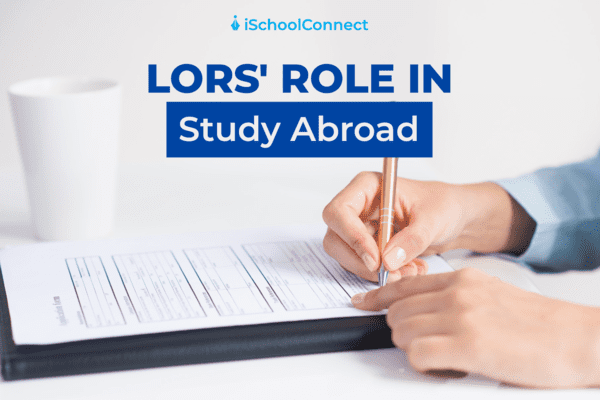Table of Contents
- Admission application process | An overview
- Importance of understanding the admission application process for international studies
- The timeline breakdown for the application process
- Research and preparation phase (1-2 years before application)
- Application phase (10-12 months before intake)
- Admission offers (6-8 months before intake)
- Visa application (4-6 months before intake)
- Pre-departure preparation (2-3 months before intake)
- Arrival and enrollment (before intake)
- Academic journey (throughout the program)
- Graduation and beyond (upon completion of program)
- Key takeaways
- FAQs
Admission application process | An overview
Understanding the admission application process for international studies is crucial for aspiring students pursuing education abroad. It demystifies the often complex and diverse application process and provides a clear roadmap for achieving academic goals in a foreign country. Understanding the process empowers aspirants to plan effectively, improve their chances of acceptance, and embark on a successful international educational experience that can broaden their horizons, foster personal growth, and enhance future career prospects. Hence, understanding the admission application process for international studies is crucial.
Importance of understanding the admission application process for international studies
- Quality education – Many students aspire to pursue higher education abroad due to the availability of prestigious institutions and high-quality academic programs. Understanding the admission application process is the first step to gaining access to these educational opportunities.
- Application Preparation – Navigating the admission application process requires thorough preparation, including gathering the necessary documents, preparing a solid application, and meeting deadlines. Being well-informed helps students put their best foot forward.
- Visa and immigration requirements – International students often need visas or study permits to enter and study in a foreign country. Understanding the admission application process includes knowing the visa requirements and procedures essential for legal entry and stay.
- Financial planning – Admission requirements often include financial documentation to prove the ability to cover tuition and living expenses. Understanding these requirements is critical for financial planning and securing necessary funding sources.
- Scholarships– Some international universities offer scholarships and financial aid to deserving students. Knowing the admission application process allows students to identify and apply for these opportunities.
- Cultural adaptation – admission application process often involve interviews or interactions with representatives of the host institution. Understanding the process helps students prepare for these interactions and adapt to the cultural expectations of the host country.
- Academic prerequisites – Different institutions and programs may have specific
- academic prerequisites in the form of standardized tests like the GRE or GMAT. Understanding these requirements ensures students meet the necessary qualifications.
- Legal compliance – Navigating the admission application process involves adhering to the laws and regulations of the host country. Understanding these legal aspects is vital for a smooth and legal transition to international study.
- Future planning – Knowledge of theadmission application process can help students plan their academic and career paths effectively. It allows them to align their educational goals with the requirements of their desired programs.
The timeline breakdown for the application process

The admission application process for international studies can vary significantly depending on the country, educational institution, and level of study (undergraduate, graduate, or doctoral). However, several common steps and considerations exist for international students seeking admission to universities or colleges abroad.
Here are the key stages of the admission application process for international studies.
Note: The following timeline is a general guideline, and specific deadlines may vary depending on the country, university, and program. Always check with your chosen institution or university for their exact requirements.
Research and preparation phase (1-2 years before application)
| Identify your goals | Determine your academic and career goals to select the right program and destination. |
| Research universities | Explore universities and programs that align with your objectives. |
| Financial planning | Assess the cost of international studies and research scholarships or financial aid options. |
| Language proficiency | If required, start preparing for language proficiency tests like IELTS or TOEFL. |
| Entrance exams | Prepare for standardized tests like the GRE, GMAT, SAT, or ACT. |
Application phase (10-12 months before intake)
| University selection | Finalize your list of universities and programs. |
| Admission deadlines | Note application deadlines for each institution. |
| Academic transcripts | Request official transcripts from your previous institutions. |
| Entrance exam scores | Take required exams and submit scores to universities. |
| Resume/CV | Prepare a well-structured resume or CV |
| Statement of purpose (SOP) | Write a compelling SOP outlining your academic and career goals. |
| Letters of recommendation | Request and submit recommendation letters |
| Application fees | Pay application fees for each university. |
| Online application | Complete online applications for your selected universities. |
| Portfolio (if applicable) | Prepare and submit portfolios for art or design programs. |
Admission offers (6-8 months before intake)
| Acceptance letters | Await admission decisions from universities. |
| Financial aid | Evaluate scholarship offers and financial aid packages. |
| Visa Requirements | Research student visa requirements for your chosen country. |
Visa application (4-6 months before intake)
| Applying for visa | Apply for a student visa or study permit |
| Document checklist | Prepare required documents, including acceptance letters, financial statements, and passport photos. |
| Interview | Attend visa interviews if necessary. |
Pre-departure preparation (2-3 months before intake)
| Travel arrangements | Book flights and accommodation. |
| Health insurance | Secure health insurance coverage. |
| Orientation | Attend pre-departure orientations if provided. |
| Packing | Start packing essentials and important documents. |
Arrival and enrollment (before intake)
| Arrival | Arrive in your host country ahead of your program start date. |
| Orientation | Attend university orientations. |
| Course registration | Enroll in classes and complete any required placement exams. |
| Accommodation | Settle into your accommodation. |
Academic journey (throughout the program)
| Coursework | Attend classes, complete assignments, and engage in academic activities. |
| Networking | Build connections with professors and fellow students. |
| Extracurriculars | Explore extracurricular opportunities and join clubs or organizations. |
| Internships (if applicable) | Seek internships or work experiences related to your field of study. |
Graduation and beyond (upon completion of program)
| Graduation | Complete your program and attend graduation ceremonies. |
| Job search | If applicable, start your job search or consider further studies. |
| Visa status | Understand post-study visa options in your host country. |
Read more: How Does AI Solve Pain Points of the Traditional Enrollment Process?
Key takeaways
- Each step in the admission application process for international studies is crucial for a successful and fulfilling international educational experience.
- Plan ahead to meet application and testing deadlines.
- While preparing for the admission application process for international studies, maintain visa status and comply with immigration regulations.
- Secure funding sources and budget for tuition and living expenses.
- Follow visa regulations and university policies to maintain a smooth academic journey.
- Prepare for cultural differences and embrace the host country’s culture.
If you have any questions or want to know more about studying abroad, Click here to contact us. Our team is here to assist you every step of the way on your journey.
Liked this blog? Read next: Columbia University | Top 40 FAQs answered!
FAQs
Q1. How can I improve my chances of admission to international studies?
Ans. Maintain a solid academic record, gather excellent letters of recommendation, and submit a well-crafted application that showcases your unique qualities and experiences.
Q2. How can I secure financial aid or scholarships?
Ans. Explore scholarship opportunities offered by universities, governments, and private organizations. Research and apply for financial aid early in the process.
Q3. What should I pack for my international study journey?
Ans. Pack essential documents, clothing appropriate for the climate, academic materials, and personal items that provide comfort and familiarity from home.






